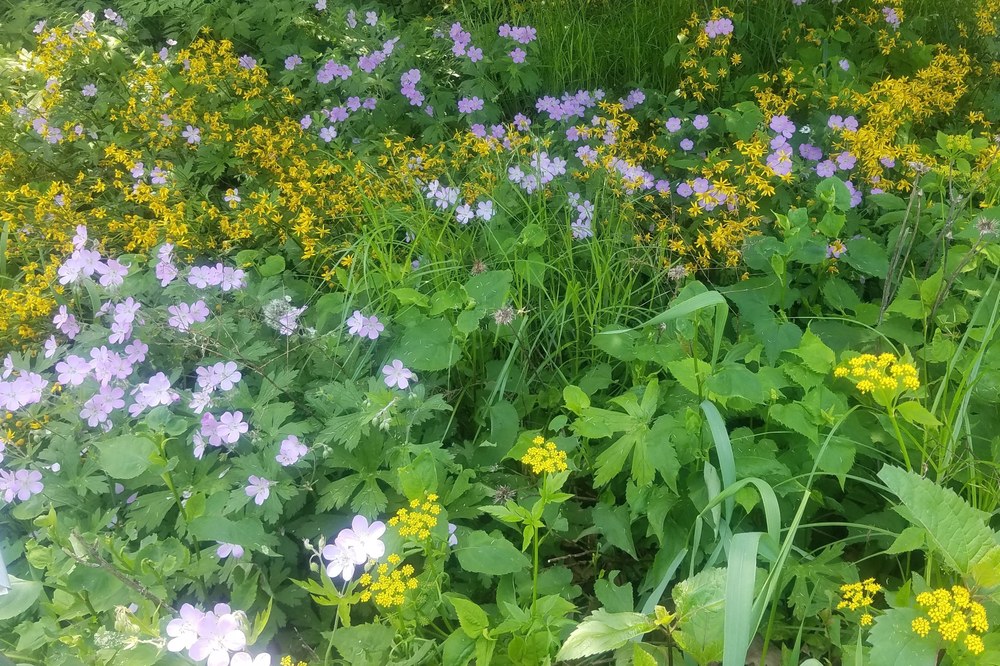Posted: April 30, 2021
Gardening involves projects that can be done every year at the same time. Though annual weather may influence the timing of these tasks, here are the things to do in May.

May Native Garden Projects - image by Pam Hall
May brings the safe time to plant.
In 2021, May 11 is the latest "official" spring killing frost date for Lancaster. A good rule of thumb is to plant after Mother's Day. Be sure that plants grown in greenhouses or indoors are hardened off, gradually acclimated to outdoors.
Be aware of the weather forecasts, trends, and warnings.
The month of May is a time when the weather can either turn your garden into an Eden, or a wasteland! Check forecasts for warning of frost and protect plants overnight. If the weather is sunny and dry, do not neglect your watering.
It is time to implement plans that you made over the winter.
If you have decided to plant a pollinator garden or add pollinator plants to your existing native plant garden, now is the time to start it. Choose your site. Butterflies and pollinators love the sun. Pollinators need nectar in early spring, throughout the summer, and into the fall. Linked here are ideas for your pollinator garden:
Planting for Pollinators, York County Master Gardeners
Gardening for Pollinators, Centre County Master Gardeners
Review native plants currently in your garden.
Make sure you have plants in bloom all the time, and by adding new native plants you will be increasing the biodiversity of your garden, have more plants support native insects, and have nectar for pollinators, throughout the season. Learn about Pennsylvania Native Plants for the Perennial Garden.
Beware of ticks! May starts the time when most tick bites occur.
(according to CDC). Ticks carry many diseases, and in Pennsylvania, the most important is Lyme disease. Wear long-sleeved shirts and long pants, tuck pants inside socks. Check for ticks when you go indoors. Avoid areas where ticks are common. Read about Creating a Tick Resistant Garden and Common Ticks and Tick-Borne Diseases in Pennsylvania.
Remove garlic mustard, an invasive weed.
Garlic mustard has displaced vast areas occupied by native spring wildflowers. In May it is easy to see garlic mustard in various stages of growth. The goal is to remove them before the flowers bloom or at least before they go to seed.
Mulch is one of the best ways to nurture native plants in your garden and ensures that everything grows both in the spring and throughout the season. Mulch controls weeds, locks in moisture, stops erosion, and locks in nutrients.
By Pamela Hall, Master Gardener, Lancaster County

